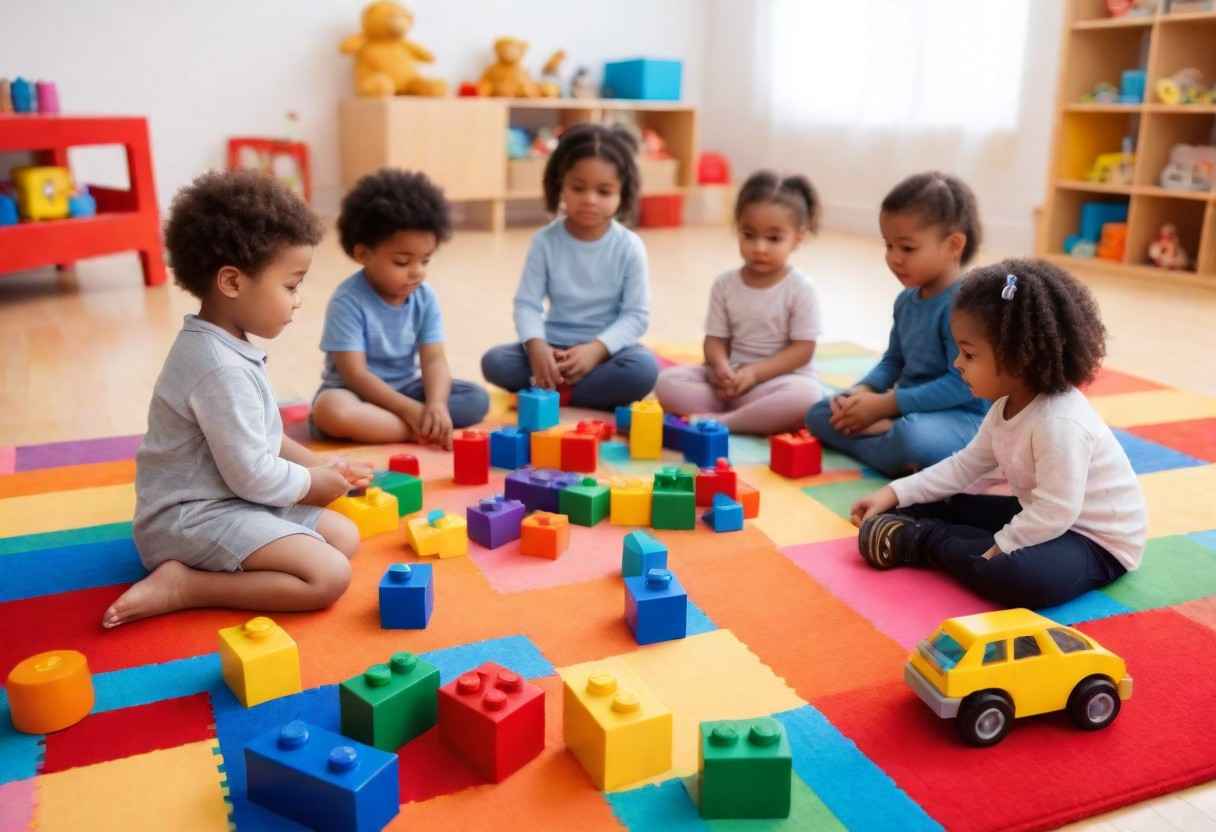Preschool age in Pakistan
Do you want to know what the preschool age is in Pakistan? In this article, you will learn that children in Pakistan engage in early childhood education programs that focus on foundational skills.
Officially, the Pakistani education system defines preschool as covering children aged 3 to 5. This period usually consists of three stages: Play Group, Nursery, and Kindergarten (KG)
Variations: In some private settings, children aged 3 to 6 might attend preschool for three years instead of two. The names used for these programs also vary, including playgroup, pre-prep, prep, KG, and Montessori.
Public versus private: Public schools often offer a one-year pre-primary program called “katchi” for children 3-5 years old. Private schools offer more comprehensive programs lasting two or three years.
It’s important to note that access to preschool education varies across Pakistan. Urban areas generally have better access than rural areas, with significant disparities based on socioeconomic status and gender.
What Happens During the Preschool Years?

Think of this time as a magical garden where your child blossoms! Through play, exploration, and activities tailored to their needs, they develop essential skills like:
Language: From mastering Urdu and regional languages to understanding stories and expressing themselves confidently.
Social and Emotional: Learning to share, communicate, make friends, and manage emotions like happiness, anger, and frustration.
Cognitive: Enable preschoolers to problem-solve, count, recognize shapes, and explore the world with curiosity.
Physical: developing gross motor skills (running, jumping) and fine motor skills (holding a pencil, drawing).
Your Child’s Preschool Journey: How You Can Be Involved?
Joining the team
Stay Connected: Regular meetings with teachers ensure everyone’s on the same page about your child’s progress.
Lend a Hand: Volunteer for activities, share cultural lessons, or help organize events. You’re a valuable resource!
Making learning fun
Connect at Home: Continue classroom activities at home, reinforcing concepts through play and cultural traditions.
Talk it out: Share stories, sing songs, and discuss what your child learned at school, creating a bridge between home and school.
Celebrate Together: Recognize achievements and milestones, big and small, to foster a love for learning in your child.
Remember
You are your child’s first teacher and biggest cheerleader.
Your involvement creates a supportive network for your child’s development.
Learning should be fun and culturally relevant at school and home!
Types of preschool programs
Many options exist in Pakistan, each with its own flavor
Playgroups: These are often informal gatherings for 2-3-year-olds, focusing on socialization and essential learning through play.
Nurseries: These are structured programs for 3-year-olds, with activities designed to develop cognitive, social, and emotional skills.
Kindergartens and prep schools: These are more formal settings for 4-5-year-olds, where they are prepared for primary school through academics and structured learning.
Montessori Schools: Based on the Montessori philosophy, they emphasize self-directed learning and exploration in a prepared environment.
Katchi Classes: Traditional pre-primary classes are often attached to public schools, offering basic literacy and numeracy skills.
Important points to remember
Preschool enrollment isn’t mandatory but is highly encouraged for its benefits.
Access to good-quality preschools varies, especially in rural areas.
Public and private programs exist, catering to different budgets and needs.
Consider your child’s personality and learning style when choosing a program.
Challenges and Innovations in Pakistani Preschools
Pakistani preschools are fostering the next generation, but hurdles remain. Bridging the gap between socioeconomic backgrounds is crucial, with initiatives aiming to make quality education accessible to all.
Challenges
Socioeconomic Disparities: Access to good preschools can be limited, particularly for underprivileged children.
Lack of Awareness: The importance of early childhood education is only sometimes fully understood, especially in rural areas.
Standardization and Regulation: Varying program quality and fragmented systems pose challenges.
Innovations
Inclusivity Initiatives: Scholarships, community-based preschools, and outreach programs aim to level the playing field.
Teacher Training: Upskilling and professional development programs enhance teaching quality.
Technology Integration: Educational apps, digital tools, and interactive resources prepare children for a tech-driven world.
Cultural Integration: Curriculums reflecting Pakistani traditions and values foster a sense of identity and belonging.
Preschools in Pakistan are evolving, embracing challenges and harnessing innovations to nurture young minds. By ensuring accessibility, quality, and cultural relevance, they pave the way for a brighter future for all children.
Embrace the Journey
The preschool years are a beautiful time for bonding, learning, and laying the foundation for future success. Celebrate each milestone, cherish the giggles and explorations, and remember that nurturing young minds is valued deeply in Pakistani culture.
Conclusion
In Pakistan, preschool is from 3 to 5 years old, a vibrant time for little minds to flourish! This playful journey, filled with exploration and learning, lays the foundation for future success. Children blossom through diverse programs like playgroups, kindergartens, and Montessori schools, while parents play a crucial role by collaborating with teachers and bridging the gap between home and school. Embrace this excellent stage and watch your child embark on a life-long love of learning!